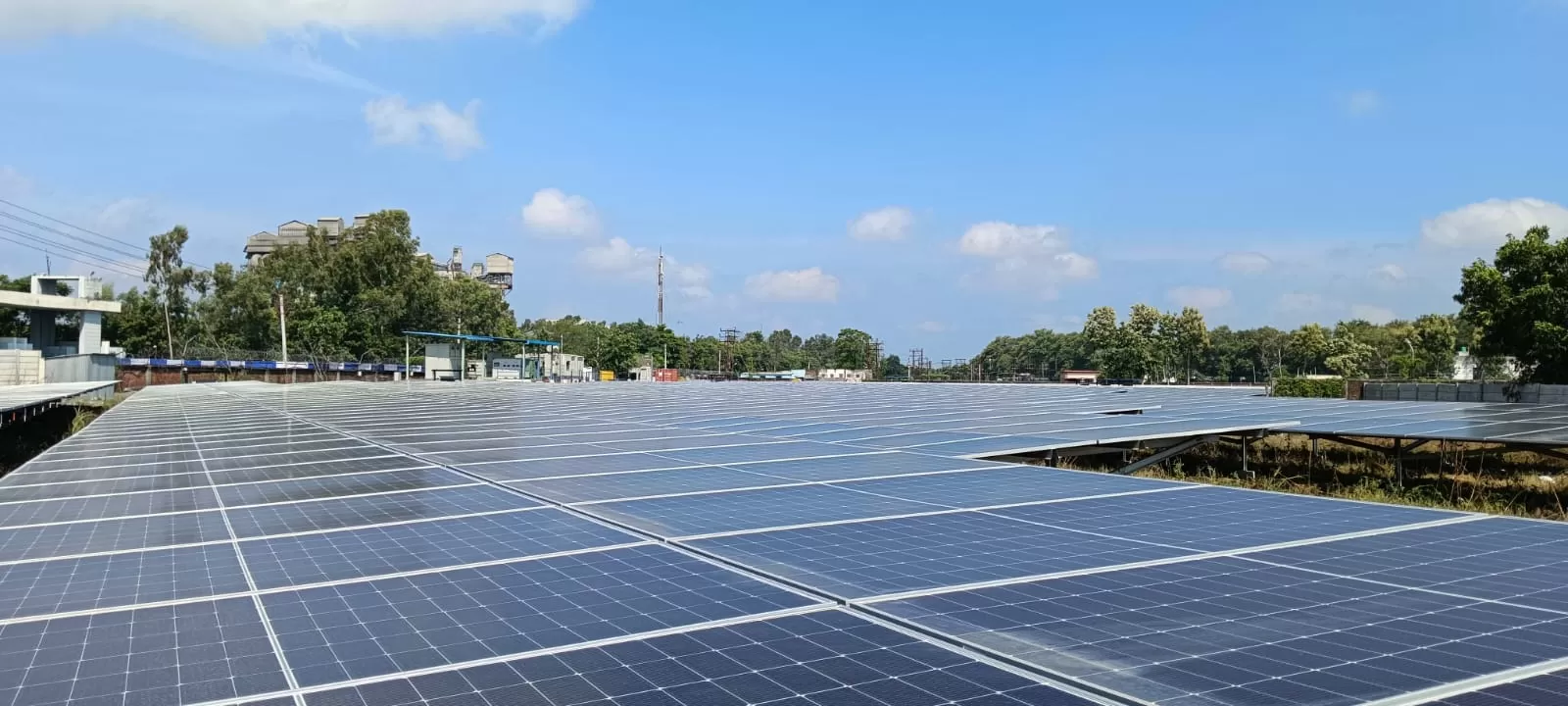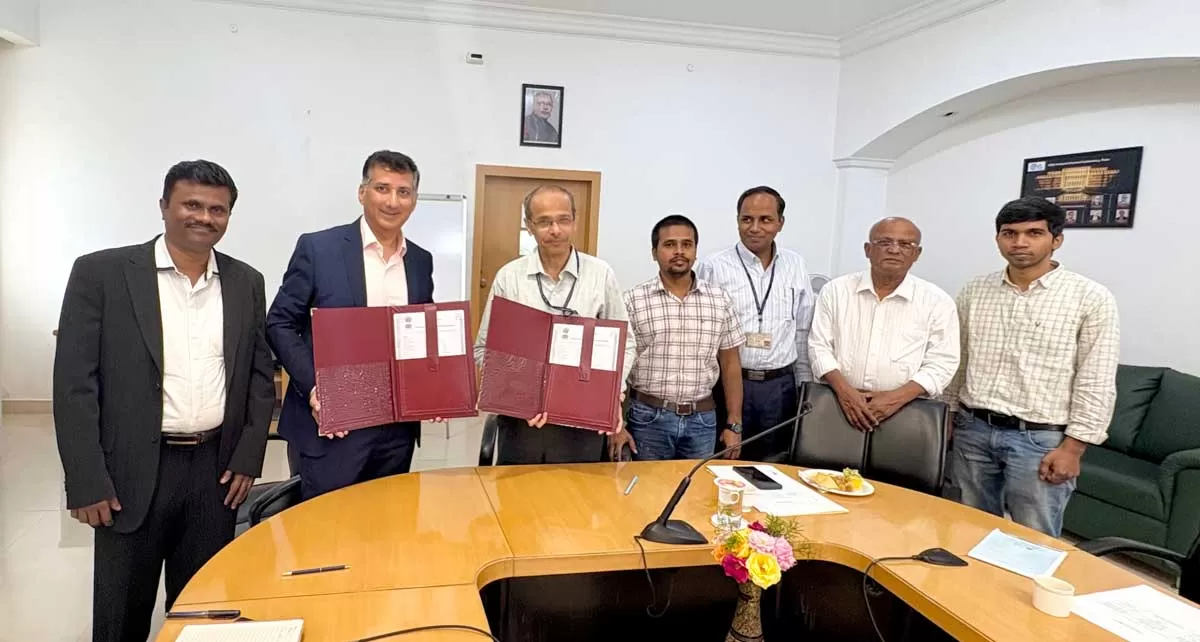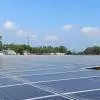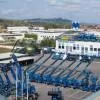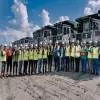Smart strategies enable smart returns for stakeholders, says
RK GOYAL.
Kalyani Steels Ltd (KSL) is a part of the over $3 billion Kalyani Group, promoted by Babasaheb Neelkanth Kalyani. Bharat Forge Ltd, the flagship company of the group, is the largest forging company in the world with a FY2015 turnover of Rs 45.48 billion. KSL is engaged in the manufacturing of forging and engineering quality carbon and alloy steels using the blast furnace route.
With the steel industry being cyclical as well as capital-intensive, KSL has adopted various smart strategies to ensure its continuous growth of value for all stakeholders. One such smart strategy has been to enter a production sharing agreement through a strategic alliance with Mukand Steel in Koppal, Karnataka, to run and establish an integrated steel plant (current capacity 0.67 mtpa). This helped the company as well as its alliance partner, Mukand Steel, to achieve the benefits of backward and forward integration by incurring a part of the cost of the overall facilities. This unique production sharing arrangement has been continuing successfully since FY1998-99. Recently, KSL has undertaken various initiatives to rationalise its raw material cost per tonne and conversion cost per tonne as well as to increase realisation per tonne of finished steel sold to enhance its profitability.
Iron-making division
The company has been able to reduce coke consumption in its mini blast furnace (MBF) and increase its specific productivity from 2.2 tonne per cu m per day to 2.8 tonne per cu m per day owing to the installation of a sinter plant, pulverised coal injection (PCI) system, hot blast stoves, iron ore and coke dryer and diluted oxygen enrichment. The details of each initiative are given below:
Sinter plant: KSL commissioned its second sinter plant (grate area 33 m^2) in March 2013, which gave it the operational flexibility to use cheaper fine materials (<10 mm) instead of expensive calibrated lump ore (10 mm-40 mm) in its MBF.
PCI: This is used to partially replace expensive coke in the blast furnace operation.
Hot blast stoves: Commissioning these for one of the blast furnaces has helped increase the temperature of hot air blown in the blast furnace, resulting in substantial reduction in fuel.
Iron ore and coke drying: Fuel consumption in blast furnaces has been reduced by reducing moisture from coke and iron ore with the use of a drying system before the material is charged in the furnace.
Diluted oxygen enrichment: Introducing this in the combustion air of the sinter plant and blast furnace results in increased temperature, which in turn lowers consumption of costly solid fuel (eg coke fines or coke).
Steel-making division
Replacement of expensive furnace oil by using blast furnace gas as fuel in ladle preheater and VD boiler.
Improvement in ferro alloy yield; for instance, improvement in lead recovery in leaded steel.
Rolling mill
The commissioning of regenerative type RHF in rolling mill to bring down the consumption of the furnace.
Now among the very few players who are running reheating furnaces on 100 per cent blast furnace gas (ie with zero furnace oil and zero natural gas usage).
Installation of inspection line, which has automated the grinding process, leading to higher quality products as well as an enhanced customer base.
Power plant
The company has improved the thermal efficiency of its power plant from 22 per cent to 27 per cent through various initiatives, making its facility one of the most efficient BF gas-based power plants of this capacity.
Reducing Fe wastage
Skull powder or flue dust: The company collects wastes such as skull powder and flue dust and recycles them in sinter plants.
EOF slag: Iron-bearing material is extracted from EOF slag and recycled in the EOF.
BF slag: The company is converting blast furnace slag into ground-granulated BF slag to be sold.
Marketing initiatives
Capability improvement to produce premium steel: Significant focus is being given to developing clean steels (with low oxygen levels and best-in-class SAM D rating) as part of the company's product portfolio. This will help improve component life, resulting in increased business. Apart from this, the company is expanding its presence in value-added steel (quenched and tempered, annealed, peeled, etc) through in-house facilities for competitive edge and better margins.
OEM approvals: Chalking out clear roadmaps for approvals and new product development with major OEMs in domestic and international markets.
The use of a substantial chunk of output by Bharat Forge mitigates KSL´s off-take risk substantially.
The company has also been increasing its customer base (from 96 clients in FY2014 to 174 in FY2015), which has helped protect its profitability.
KSL Q1FY2015 financial performance - in terms of operational profitability (~19 per cent), net profitability or favourable leverage structure and associated leaner finance cost (~1 per cent) of total operating income - despite various challenges faced by the steel industry itself is testament to its strategic thinking. We, at KSL, are optimistic about our growth potential and will keep developing smart strategies to deliver smart returns to all our stakeholders.
About the author: RK Goyal, Managing Director, Kalyani Steels, Pune, is also Director on the Boards of Kalyani Carpenter Special Steels and Kalyani Investment Co Ltd, Pune. With an industry experience of more than 30 years, he is responsible for overall management, profitability and growth of all three companies. He is associated with various forums and platforms such as International Stainless Steel Development Association, CII, Karnataka Iron and Steel Manufacturers Association, Alloy Steel Producers Association, etc.
